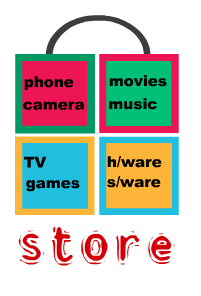freeee.in
experience excellence

interview today!!! are you confident to take it?
Let's face it; no one likes the interview process. Well, certainly not the people being interviewed anyway. You have to be on your best behavior, you only get one chance to get it right, and it's like taking your driving test all over again. Whether it is in Britain or in the States, the questions never really seemed to change from job to job. Not only that, but the answers to them are usually the same, with your own personal interpretation of course. Remember, being interviewed is a skill, and if you do the preparation you should ace it every time. Below is an indicative list of 20 questions you are likely to be asked:
1. So, tell me a little about yourself.
Be careful not to give the interviewer your life story here. You don't need to explain everything from birth to present day. Relevant facts about education, your career and your current life situation are fine.
2. Why are you looking (or why did you leave you last job)?
It's not a good idea to mention money here, it can make you sound mercenary. And if you are in the unfortunate situation of having been downsized, stay positive and be as brief as possible about it. If you were fired, you'll need a good explanation. But once again, stay positive.
3. Tell me what you know about this company.
Do your homework before you go to any interview. Whether it's being the VP of marketing or the mailroom clerk, you should know about the company or business you're going to work for. Has this company been in the news lately? Who are the people in the company you should know about? Do the background work, it will make you stand out as someone who comes prepared, and is genuinely interested in the company and the job.
4. Why do you want to work at X Company?
Any research you've done on the company should have led you to the conclusion that you'd want to work there. After all, you're at the interview, right? Put some thought into this answer before you have your interview, mention your career goals and highlight forward-thinking goals and career plans.
5. What relevant experience do you have?
Hopefully if you're applying for this position you have bags of related experience, and if that's the case you should mention it all. But if you're switching careers or trying something a little different, your experience may initially not look like it's matching up. That's when you need a little honest creativity to match the experiences required with the ones you have.
6. If your previous co-workers were here, what would they say about you?
Ok, this is not the time for full disclosure. Stay positive, always, and maybe have a few specific quotes in mind. "They'd say I was a hard worker" or even better "Andrew has always said I was the most reliable, creative problem-solver he'd ever met."
7. Have you done anything to further your experience?
Obviously anything to do with further education is great, but maybe you're spending time on a home improvement project to work on skills such as self-sufficiency, time management and motivation.
8. Where else have you applied?
Be honest and mention a few other companies but don't go into detail. The fact that you are seriously looking and keeping your options open is what the interviewer is driving at.
9. How are you when you're working under pressure?
Once again, there are a few ways to answer this but they should all be positive. You may work well under pressure, you may thrive under pressure, and you may actually PREFER working under pressure.
10. What motivates you to do a good job?
The answer to this one is not money, even if it is. You should be motivated by life's noble pursuits. You want recognition for a job well done. You want to become better at your job. You want to be a leader in your field.
11. What's your greatest strength?
This is your chance to shine. You're being asked to explain why you are a great employee, so don't hold back and stay do stay positive. You could be someone who thrives under pressure, a great motivator, an amazing problem solver or someone with extraordinary attention to detail. The interviewer is looking for work-related strengths.
12. What's your biggest weakness?
Say things like "I'm perhaps too committed to my work and don't spend enough time with my family." OR "I think I'm too good at my job, it can often make people jealous."
13. Let's talk about salary. What are you looking for?
This is one tricky game to play in an interview. Even if you know the salary range for the job, if you answer first you're already showing all your cards. You want as much as possible, the employer wants you for as little as you're willing to take. Before you apply, take a look at salary.com for a good idea of what someone with your specific experience should be paid.
14. Are you good at working in a team?
You should always answer YES to this one. It's the only answer. How can anyone function inside an organization if they are a loner? You may want to mention what part you like to play in a team though; it's a great chance to explain that you're a natural leader.
15. Tell me a suggestion you have made that was implemented.
It's important here to focus on the word "implemented." Be prepared with a story about an idea of yours that was taken from idea to implementation, and considered successful.
16. Has anything ever irritated you about people you've worked with?
You should not say much details here, it shows you as being negative and difficult to work with. The best way to answer this one is to think for a while and then say something like "I've always got on just fine with my co-workers actually."
17. Tell me about any issues you've had with a previous boss.
The interviewer is testing you to see if you'll speak badly about your previous supervisor. Simply answer this question with extreme tact, diplomacy and if necessary, a big fat loss of memory. In short, you've never had any issues.
18. Are you willing to put the interests of X Company ahead of your own?
If you say yes, you're a person who doesn't care about family. If you say no, you're disloyal to the company. I'm afraid that you'll probably have to say yes to this one though, because you're trying to be the perfect employee at this point.
19. So, explain why I should hire you.
If you say, "because I'm great" or "I really need a job" are not good answers here. This is a time to give the employer a list of your greatest talents that just so happen to match the job description. Focus on yourself and your talents, not other people's flaws.
20. Finally, do you have any questions to ask me?
This directly relates to the research you've done on the company and also gives you a chance to show how eager and prepared you are. You'll probably want to ask about benefits if they haven't been covered already. A good generic one is "how soon could I start, if I were offered the job of course." You may also ask what you'd be working on. Specifically, in the role you're applying for and how that affects the rest of the company. Always have questions ready, greeting this one with a blank stare is a rotten way to finish your interview.
Good Luck on your next interview!!!





